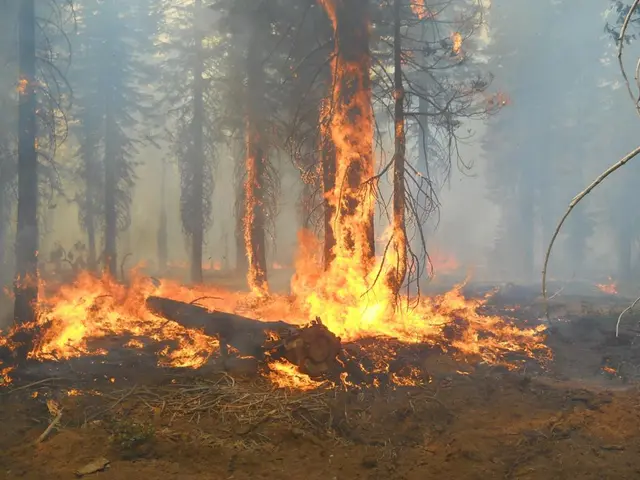Citizen Thekla Walker's Statement: "Let's focus on our own homes first"
Challenges and Solutions for Wind Power Expansion in Baden-Württemberg
Baden-Württemberg, a German state aiming to achieve climate neutrality five years before the federal government and ten years before the EU, is facing several challenges in its wind power expansion. The review of the reference yield model for wind power has caused concern, and there's a risk of missing the 2030 targets due to various obstacles.
The current challenges include acceptance problems among local populations, under-allocation of land for wind power projects, bureaucratic hurdles, and grid constraints. Resistance often stems from concerns about landscape impact, environmental effects like noise and harm to wildlife, and a lack of public participation. Limited land availability and slow permitting processes further complicate the situation. Grid integration and volatility from renewable sources necessitate expanded and flexible electricity infrastructure.
To overcome these barriers, several solutions are being proposed. Accelerating renewables expansion involves improving legal frameworks and administrative processes to ease permitting and increase public acceptance through better community involvement and regional participation. Repowering older turbines with modern, more efficient machines can produce more energy from the same footprint and better grid integration. Expanding battery storage and innovative flexibility solutions can balance volatile wind power generation with grid demand, thus stabilizing the electricity system.
Investments by companies like EnBW, the major utility in Baden-Württemberg, are supporting grid infrastructure enhancement and expanding renewable capacity, targeting about 75–80% renewable electricity by 2030. These combined approaches aim to address social, technical, and regulatory barriers to expand wind energy in line with Germany's decarbonization goals.
Key Points:
| Challenges | Solutions | |---------------------------------------|--------------------------------------------| | Local resistance (landscape, wildlife, noise) | Enhance public acceptance and participation | | Limited land availability | Optimize land use, repowering existing sites | | Bureaucratic hurdles | Streamline permitting and legal frameworks | | Grid integration and volatility | Expand grid infrastructure and battery storage systems |
The Environment Minister of Baden-Württemberg, Thekla Walker, is a woman of clear words and goals, committed to environmental and nature conservation, the ecological modernization of the economy, and fair education. The coalition agreement, which includes a commitment to the climate target and energy transition, has been met with satisfaction by Thekla Walker.
The coalition is in favor of building gas power plants, but these must be switched to hydrogen at a certain point in time. The clearing up of the nuclear energy issue is something Thekla Walker finds positive in the coalition agreement. There are over 1100 wind turbines in planning in Baden-Württemberg, and Thekla Walker has been a member of the state parliament for the constituency of Böblingen since May 2016.
[1] Environment Minister's website [2] Local newspaper article [3] German Federal Ministry for the Environment, Nature Conservation and Nuclear Safety [4] EnBW press release
- The Environment Minister of Baden-Württemberg, Thekla Walker, has been advocating for solutions to overcome the challenges in wind power expansion, such as enhancing public acceptance and participation to address local resistance,optimizing land use, and streamlining permitting and legal frameworks.
- Amidst the debate on policy-and-legislation involving renewables in Baden-Württemberg, discussions on the role of science, especially in terms of environmental-science, are crucial for assessing the impact of wind power on landscapes, wildlife, and the environment itself, and for providing evidence-based solutions to mitigate such effects.
- In the realm of politics and general-news, the coalition agreement in Baden-Württheimer has set the stage for various climate-change and energy-transision initiatives, including the shift toward hydrogen power in gas power plants, the resolution of the nuclear energy issue, and a commitment to achieving an ambitious renewable energy target, all under the management of Environment Minister Thekla Walker.







